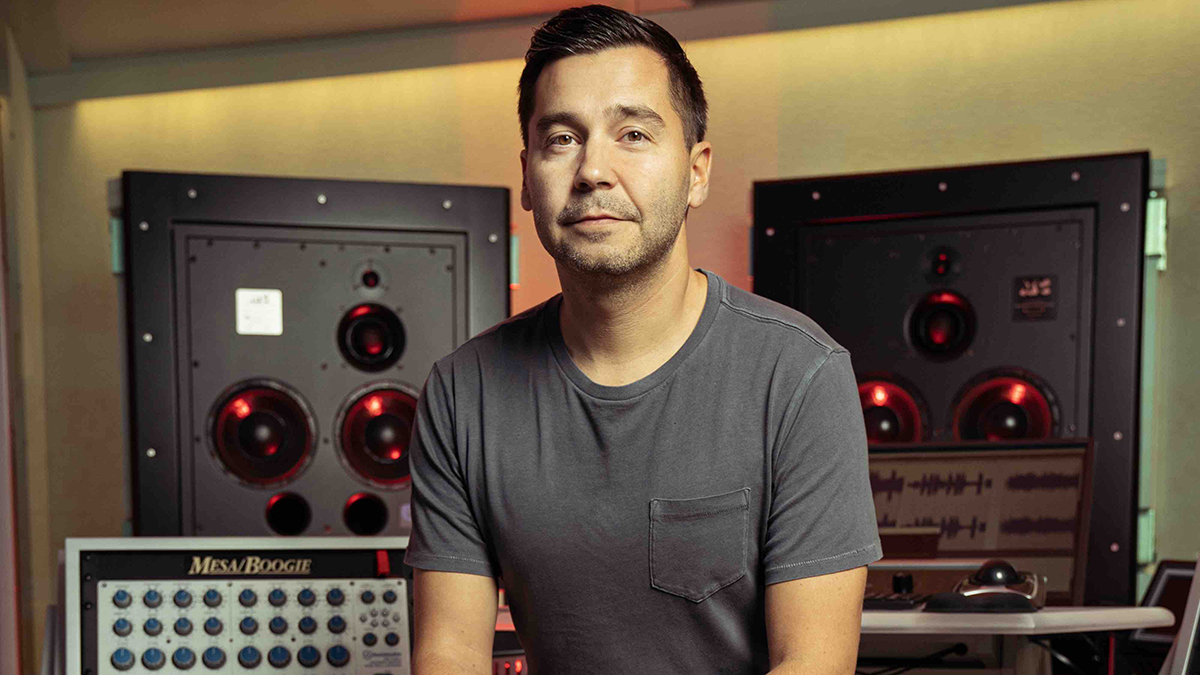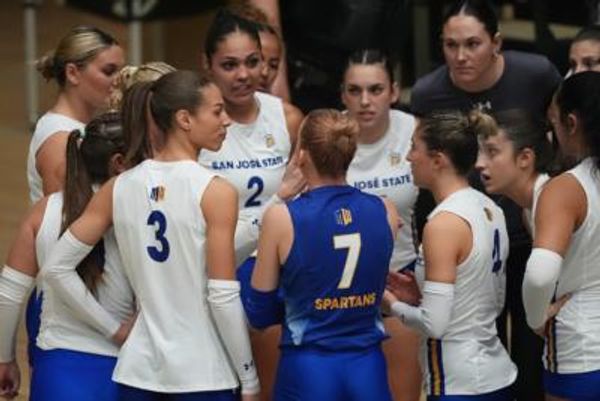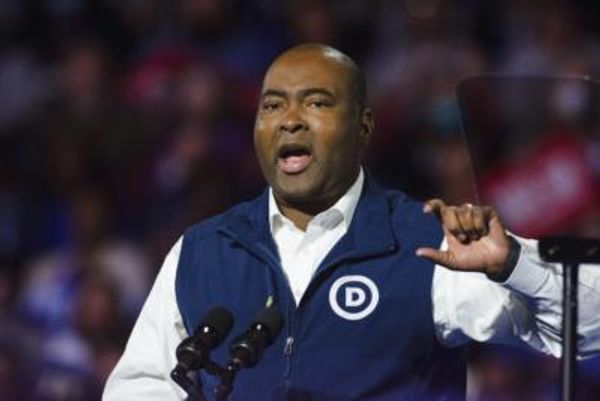
As one of today’s most decorated mastering engineers, Joe LaPorta has become the go-to guy when the big names need that final shine on their next big hit. LaPorta trades on 20 years of experience, and has spent that time delivering the goods for artists ranging from David Bowie, Shawn Mendes, Frank Ocean and Miley Cyrus to Vampire Weekend, Foo Fighters, Beach House, Bon Jovi and beyond.
We caught up with Joe in his new studio at Sterling Sound, fresh off a US Billboard number one with Future, Metro Boomin and Kendrik Lamar’s Like That. And with two Grammys in the trophy cabinet (from Miley Cyrus’ Flowers and David Bowie’s Blackstar) we were eager to find out how he makes the magic happen for such a diverse range of artists.
Hey Joe, where are you at right now?
“I’m in New York, located right outside the city. We had our studio in the Chelsea market for 20 years and then right before Covid we moved to New Jersey. We’re parallel to Harlem right across the Hudson River so just a hop, skip and a jump away from the city.”
And this is the new Sterling Sound facility?
“Yeah, they purchased the town of Edgewater's old post office and then they gutted it and then we put in four identical rooms.”
And do you do all of your work there?
“Yes. We also have two matching rooms in Nashville with two other engineers so I can technically go down there and be comfortable in the room because it's all designed by the same person and has all the same speakers. But, yeah, this is the only room that I ever work in.”
So what kind of gear do you have in there?
“Well, there's an array of things here. As far as speakers go I have ATCs and then with some of my analogue equipment, I have a Sontec [MES432-D9D] EQ which I love and I use on pretty much everything.
“A lot of this stuff that did all goes through this Muth [CM 2020] audio console that gives me the option of adding the stereo imaging width to things along with gain.
“I have a couple of pieces of gear from Avalon [including a VT-747SP]. They have a nice kind of warm sound to them that I use depending on the project. A Shadow Hills mastering compressor and some digital stuff as well, but it’s the combo stuff that’s usually how I get the results.”
What kind of software do you use when mastering?
“Well, my DAW for everything is Pyramix and I'm working on a PC, and then within that there's a few plugins that I use here and there. But, you know, I try to keep it analogue whenever possible but sometimes that depends on what I'm receiving as mixes.”
Let’s take it right the way back. Were you a music maker or an engineer before finding your mastering niche?
“Yeah, I was a music maker back in the day and made a lot of hip-hop and electronic music. A lot of jungle and drum ‘n’ bass back in the late nineties, early two thousands… I put out some records and I got some attention. In the UK as well. I had some of my songs played by John Peel, DJ Hype, Grooverider, all of them. The UK always had the best sound and everyone in the US was trying to sound like that. I was able to make a name for myself in the brief time that I did it. So, yeah, it was really cool.
“And while making the jungle records and doing hip-hop we were just mixing and mastering ourselves. So a lot of it was listening to some jungle record that I idolised and trying to make sure that I can get it as loud and clean sounding as whatever was on wax. So I was learning ‘why does it sound so good?’ and self teaching myself to do it that way.
“Then I started an internship at a small mastering studio in the city called The Lodge and I was there for eight years. That’s when I was asked to join Sterling Sound and I've been here for 11. It’s an amazing place to be a part of. The crazy support staff… The rooms that they've built for us are just fantastic.”
And the Sterling brand brings in the big names?
“Well, as far as getting your own work, you're pretty much on your own. It's like you eat what you kill! Sure, the Sterling Sound name has a legendary status to it. But it’s not like they’re getting random projects and saying ‘who wants it?’ My work has always been based on the clients that I had acquired and then continuing to build and going out to shows at night and just grinding. “Offering lots of free test tracks and just being aggressive and having a lot of tenacity… I think that's what’s paid off after all this time because now I've been doing it for 18 years.”

How would you describe what it is that you deliver? Why do people come to you and what do they expect from you?
“I guess it's the musicality of how I master things. I think, because of my experience in all different genres, I find a way of bringing an album together. So, if you have your 10 songs, I find a way to make each one sound better on their own, but also bring it into this context of cohesiveness for an album that - I've been told - some people don't do as well as me.
“And I've been told that, if they try me and several other engineers for a track, I don't only make it louder but it just feels better, too.
“And because of the things that I obsess over - just like making sure that pocket and momentum of the track is maintained rather than just pushing it to make a certain number - I'm always focused on the musical aspects rather than the loudness.”
The amount of different genres you’ve worked across is amazing. Do you have to get into a certain mindset for each track?
“Yeah, it's case by case, depending on the track and on the genre. Depending on the mixer, depending on the producer; there's all different factors. If I did the same thing every time it wouldn't work.
“Mixers and producers are very particular and I just learn over time what everyone likes. I have this mental Rolodex in my head of who likes what. And there are certain mixers that are even more varied in different genres, so it could be a rap or an R&B single or something else, but they still like a certain thing with each track that they do. So I have to always keep that in mind.”
A lot of those indie rock records from that Pitchfork era, you know, the early two thousands? There were a lot of challenges there and if you can get that shit to sound good then you could really do anything!
But working with rock after being an electronic and hip-hop artist…?
“Yeah, I went to a mastering house that mainly just did indie rock so I came in learning! That was probably the best way to sharpen the skills because in a lot of those indie rock records from that Pitchfork era, you know, the early two thousands? There were a lot of challenges there and if you can get that shit to sound good then you could really do anything! It made me quite the soldier as far as being able to handle any kind of sonic challenge.
“And then it was time to gravitate over. Whether it was the hip-hop or country and pop. I just made sure to be obsessed and tried to knock people's socks off every time I did it. Putting the word around the different genres to the point that now it's just amazing to see all the trust I gained from all these different people and continue to work with them. A lot of them over a decade now.”
Do clients still bring you a finished track and say ‘make this sound like this record’?
“Yeah, but less and less these days. But back when I started - and I guess it was probably some of my insecurities coming into play - I would always ask ‘what record do you love or what do you want to sound like?’ And then they'd give me some examples.
“But that can also be very dangerous because you can easily lose the plot. When you start to A/B and start to try to chase that sound… You could easily make the track that you're working on become too harsh or too ‘SD’. Or just kind of lose the groove that it had because you're just matching the clarity that you admire on the other record. You have to take a step back and see what they like about the record that they're referencing, but go back to what you're working on and make sure that you don't lose the integrity of that.”
We’re thinking that these days producers and engineers are pretty mix-literate. Is everything well recorded and balanced these days, or is it as tricky and random as ever?
“It can vary. When you're working with newer artists that can be exciting - working on some newer, edgier stuff. There can be some challenging mixes in that world. But luckily, over the years as I build up my name, it definitely can get easier where a lot of the mixes become more dialled in and they're just more polished and ‘right there’.
“And then it becomes a matter of taking that and just seeing what you can do to accentuate and improve it without losing the plot. But, yes, over the years, I've been fortunate enough to be getting stuff that sounds great from all these amazing mixers.”
And you’ve worked on some amazing tracks. You won the Grammy for Miley Cyrus’ Flowers, which is going to be a future classic, and you did Losing You by Solange, which is amazing. It was also great to see that you did Sprinter for Dave and Central C, which is a big hit in the UK.
“Yeah, so much of this is all about relationships and just showing that you’re improving over the years. The Dave and Central C track came from the mixer Johnny Leslie. I had met him a couple of years earlier through working on the FKA Twigs album. He was engineering for her and I had a brief convo with him about something on that record and so he came with this amazing EP from Central C and Dave.
“And Solange. That was over 10 years ago… That beat was by Blood Orange. It was a cool time in New York back then. There were just these amazing things and awesome collaborations would just pop up out of nowhere.”
Losing You is an amazing track - we’re imagining the first time you pushed the faders up on that crazy beat…
“Yeah, it has all the crowd inside… Baked into the beat and the loop. It's a very, very unique track and the bass has this funky thing to it.”
Have there been any other tracks that have really jumped out for you?
“Yeah, there's been a bunch. Probably most notably, the David Bowie album, Blackstar, and hearing those tracks for the first time with Tony Visconti in the room. And just working out the magic in that record. Hearing all the lyrics and stuff and putting it all together. It was a pretty crazy, surreal experience.”
And you even remastered Gangsta's Paradise for Coolio.
“Yeah, it was a cool experience. I got a lot of fun records like that through Tommy Boy Records. I did De La Soul and Brand Nubian, remastering some of those albums and then they came to me with Gangsta's Paradise and also House of Pain, Jump Around. And actually, next week I’m doing Planet Rock, Afrika Bambaataa.
What’s it like reworking classics? It's quite a responsible position to be in.
“With Coolio it's just a matter of constantly referencing what the world is used to. It's tricky because everyone knows this and it’s such a perfect thing already, but you just try to find a way to bring out little characteristics of it so you can complement it further without losing the integrity of what everyone is used to. So once I got it on my desk, it was just lots of A/B and making sure that it was gonna feel better rather than just being louder.
“There’s nothing worse than getting a remaster, whether it's an album or a single, and it's just loud for no reason and it’s lost all the vibe. I'm very much a vibe guy and that's the only thing I fixate on all the time.”
What’s your take on loudness and ‘the loudness war’? Is that battle still raging?
“Yeah, loudness is cool if it makes sense, you know? If it still has a groove and a pocket to it. But there are a lot of records where people just go loud and just lose something. If you have a whole album like that it becomes quite fatiguing. There are many amazing records that are loud but I think a good part of that is making sure that the low end and the low mids are there as well. You need to deliver the full spectrum at that loudness rather than just feel very brittle and lifeless.
“So yeah, I'm all for loudness, especially when people are doing it stylistically, but just… it just has to be done right. Every mix has its own potential loudness. I could have five tracks and maybe two of them can get super loud and the other three can't. Just based on the balances or the overall sonic profile of the song.
“So it’s just knowing how far you can push something before it loses its musicality.”
And how do you know where that point is?
“I don't really refer to numbers or graphs or any of that at any point. I just look at the meters and I'm just going off the sound. And once it sounds like it's losing something that's when I just scale back and keep it there rather than going further just because there might be another record that's louder. I can keep on pushing it to try to get to that… but then you're gonna lose all the good stuff in yours.”
Do you get mixes that are completely slammed already? Maybe they think they’re doing you a favour delivering that?
“Yeah, a lot of times it is what it is. There's records that have come out there louder than I would have wanted them. It all depends on what the artist is attached to this whole time. If they've been listening to this certain thing… It all kind of starts with the demo. If you start loud then and then the mixer has to successively ‘beat that’ and then I have to ‘beat that’ again..?
“But sometimes it doesn't need it. I’m not going to waste my time or try to put my mark on it just because they're paying me. So I'll tell them. It sounds great. It's at the right level and I just did some EQ to it and some real subtle stuff because it was already dialled in. You have to think ‘how did it get approved by all these people if they weren't psyched with it already?’ So you just have to make it sound as good as it can at that level.”
Loudness is cool if it makes sense, you know? If it still has a groove and a pocket to it. But there are a lot of records where people just go loud and just lose something.
You mentioned earlier about using the meters. How much of modern mastering is a visual thing for you? Are you using spectral analysis or apps to see what you’re hearing?
“No, nothing. Nothing of the sort that I know a lot of people use. For me, I just don't like to get distracted by that. I'm in this amazing room and it's very transparent working in here. I can hear exactly when it’s reaching the brink of where it might start to break up or it’s being pushed past its comfort level.
“So yeah, maybe those tools come in handy when you don't have the most perfect room. Then the spectrograph can help identify things that maybe you're only noticing when you play it in your car.
“But I'm definitely spoiled in this room where it's so dialled in that the moment I hear something I can know what I'm going to do with it. A lot of times the mixers will send the mix earlier than the actual mastering day so I can check it out. Then I could say ‘yeah, this sounds dope, but you could raise a snare or, you know, maybe this vocal could come down a dB. Just little things like that. Then when it’s mastering day, the mix is just a touch more prepared to get the best results.”
So you have some input at the mixing stage? They can ask for your suggestions before it comes to you as a two-track?
“Yeah, I mean, it depends on the client. If this is a person I've been working with for years where it becomes this regular thing… There are albums that just came out where it wasn't just mastered in one shot. Sometimes we do three or four rounds where not only are they tweaking on their end, but then I'm saying ‘hey, I noticed this, this and this; feel free to ignore me’ but I’d feel stupid if I didn't say something just based on my experience. And sometimes they take note of it and sometimes they don't. But as long as I get it off my chest, I can sleep at night!”
There have been people who have done tests and they had me do a track and then they had AI do it. I haven't been told yet that the AI mastering one sounded better…
Have you ever been in a position where they’re asking the impossible? And you have to say ‘you need to fix this in the mix first’?
“Yeah, so sometimes certain people have unrealistic expectations of what can happen in a master. So beyond me just twisting some knobs on my end, I offer my expertise.”
If you don't have all the proper fundamentals within the mix, then you're just scooping for more mud and muck and it's not gonna translate as well and have that real defined punch and oomph to it. Achieving that in the mix before mastering, and then me going on top of it and doing my own thing… That’s the combination that gets the best results.”
So what, what kind of magic can you work at the mastering stage?
“I guess the magic now is just being able to get clarity and depth at these louder levels that maybe someone in their mix room can’t achieve, or just fixing something that they might not be hearing. And being able to do that with confidence.”
And how do you feel about today’s tech? The one-touch, instant, press a button and it masters it for you, AI-powered stuff?
“Yeah, I don't think much. I mean, I get it. Like if it makes sense for you. Some people may have limited budgets or just a very quick timeline and they need to get it done. But there have been people who have done tests and they had me do a track and then they had AI do it. I haven't been told yet that the AI mastering one sounded better…”
What are you working on right now? Anything that isn’t top secret?
Yeah, there's definitely some top secret stuff right now, but I just wrapped up the 21 Pilots album. I wrapped up these two Future Metro Boomin albums that just came out and one of the tracks that has Kendrick Lamar on has been number one on Billboard for the past three weeks, which is cool. It's nice to see rap coming back to the charts a little bit more.
“I worked on Willow's new record - Willow Smith - that’s a really cool record that I'm excited about. I’m working on Don Toliver's new album… And Gunna’s album is about to come in. I think that's all I can talk about right now.”
Finally where do you keep your two Grammys? One on each speaker? Left and right?
“Ah, I keep them at home. But I have a Lego one here instead. I keep all the real hardware at home.”







